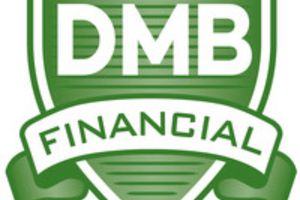
When a parent passes away, the last thing on your mind might be their debt. However, in most cases, you don’t have to worry about inheriting their debt. When a person dies, their debts are generally settled by their estate or forgiven. Debts that you can inherit from your parents are debt that you’ve co-signed with them, debts on inherited property, and, in some states, medical debt.
Key Takeaways
- Usually, a deceased parent’s debts are settled by the parent’s estate or forgiven, not inherited by a child.
- Debt collectors can make a claim against an estate, but they may not harass a child to pay a deceased parent’s debts.
- If you inherit a parent’s property, you inherit any debts associated with that property. You also inherit any debts for which you are a co-signer.
- In some states, medical debts aren’t forgiven upon death and can be inherited by surviving family members.
- Federal student loans and some private student loans are automatically forgiven after the borrower passes away.

How Debt Is Handled After a Death
In most cases, a child is not responsible for a deceased parent’s debts. Debts are settled by the parents’ estate, meaning the money and property they leave behind.
“Whoever the deceased selected as the executor of their will is responsible for managing debts owed, including any debts with creditors,” says Leslie H. Tayne, Esq., the founder of Tayne Law Group. “This process is called probate.”
If your parent’s estate is enough to cover their remaining debts, it is considered solvent. Any remaining assets will be distributed to their heirs and beneficiaries according to their will, or, according to state law, if they passed away without a will.
Tip
Some assets, like life insurance and retirement accounts, can’t be claimed to pay off debts and go immediately to their beneficiaries.
If your parent’s estate is insolvent, that means there isn’t enough money to cover all their debts. If that happens, debts are paid off in a certain order.
“Funeral costs, medical bills, and tax obligations often take precedence in being paid off first,” said Tayne. Tax obligations can include estate taxes, as well as federal, state, and property taxes. Personal debt, such as credit cards and loans, is repaid last.
Once the money in your parent’s estate runs out, creditors for any remaining debts usually forfeit repayment. With some specific exceptions, the remaining debt doesn’t become your responsibility.
Dealing With Debt Collectors
Debt collectors can make a claim against an estate during probate. If the estate is unable to repay the debt in question, the debt collector will forfeit repayment.
Debt collectors aren’t allowed to harass survivors to pay for the debts of a deceased family member, even if the estate can’t pay. If a debt collector calls after your parent passes away, notify them of the death. You're allowed to tell them to stop contacting you.
Tip
If a debt collector contacts you, you can request details about the debt in question. You can also talk to a lawyer or file a complaint with the Consumer Financial Protection Bureau if you are being harassed by a collections agency.
Debts That Can Be Inherited From a Parent
However, there are instances where you can inherit your parents’ debts after they pass away.
Property Debt
If you inherit property from a parent, you also inherit any debt associated with that property. This might be a car with an auto loan or a house that has a mortgage. “The beneficiary would then be responsible for paying the remaining debt if they choose to keep the asset,” said Tayne.
Co-signed Debt
If you co-signed a loan with a parent or were a joint account holder on a credit card, you inherit the entirety of the remaining debt after they pass away. If that happens, debt collectors can contact you about repayment.
Important
Federal law prohibits nursing homes from requiring a third-party guarantor before they will admit a resident. Only the nursing home resident is considered financially responsible. You do not become responsible for a parent’s nursing home bills after they pass away.
Medical Debt
You may inherit a parent’s medical debt if you live in a state with filial responsibility laws. “These laws may require children of a deceased parent to pay back medical bills if the deceased’s assets are insufficient,” says Tayne. “Filial laws exist in 30 states and vary in their protocols and processes.”
If you do inherit responsibility for a deceased parent’s medical debt, Tayne recommends speaking with a debt attorney. “Some states may offer estate assistance programs that can help with unpaid medical debt,” said Tayne. “A debt attorney can help orphans sift through what options may be best for them and negotiate on their behalf.”
Related Stories Freedom Debt Relief Review  DMB Financial Review
DMB Financial Review 
Student Loan Forgiveness After a Death
If your parent had federal student loans or Parent PLUS loans, these are automatically discharged after they pass away. You will need to submit proof of death to the loan servicer before the loan can be discharged.
If your parent had private student loans, these may or may not be forgiven depending on the terms of the loan contract. Usually, these loans will be discharged by your parent’s estate.
The Bottom Line
Usually, you won’t inherit your parents’ debts after they pass away. These are repaid by the parent’s estate, and debts that can’t be repaid are forfeited. Debt collectors aren’t allowed to harass you to repay a deceased parent’s debts.
However, you do become responsible for your parent’s debts if you were a co-signer or joint account holder or if you inherit property with debt attached. In some states, you may also be responsible for a deceased parent’s medical debts. If you are unsure how to handle a parent’s debts after they pass away, speak with a debt attorney to understand your options and rights.



